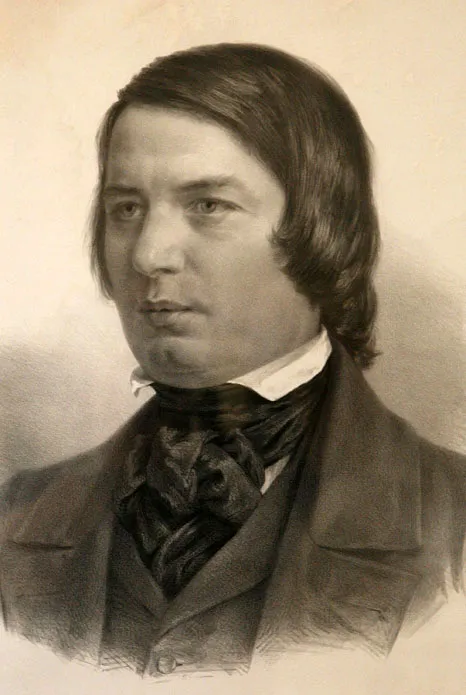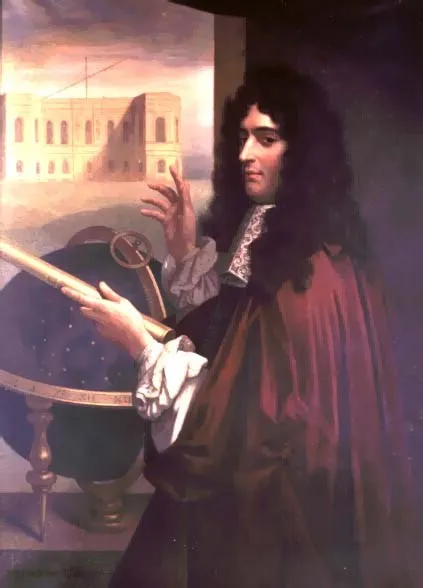
Birth Year: 1810
Full Name: Robert Schumann
Nationality: German
Profession: Composer and critic
Death Year: 1856
Robert Schumann: A Journey Through Passion and Melancholy
Born in 1810, Robert Schumann entered a world brimming with musical potential. However, he wasn’t just any child; he was the son of a bookseller who introduced him to literature and the arts at an early age. This exposure sparked an unquenchable thirst for creativity within him, leading to a life filled with intense emotional depth and groundbreaking musical compositions.
As a teenager, Schumann pursued music fervently, dedicating his life to the piano. Ironically, it was during these formative years that he suffered an injury a finger affliction that would thwart his aspirations of becoming a concert pianist. Perhaps this setback shaped him into the composer he would eventually become an artist whose heart bled through every note.
In his early twenties, Schumann began writing music prolifically. Historians recount that he had envisioned creating an entirely new language for piano music a language infused with rich emotional textures that transcended mere technicality. His early compositions were marked by stunning originality and passionate intensity; pieces like “Carnaval” depicted various characters through vivid musical storytelling.
Despite this promising start, the world was not yet ready for what Schumann had to offer. He faced skepticism from critics who could not see beyond their rigid classical frameworks. Yet instead of retreating into obscurity, he boldly founded a journal titled "Die Neue Zeitschrift für Musik." This platform became his voice one where he could champion new composers while fiercely advocating for his own works. Who knows how many musicians owe their recognition today to Schumann's relentless pursuit of artistic integrity?
The Heartbeat of Romanticism
As one delves deeper into Schumann’s career during the 1830s and 1840s, it’s impossible not to acknowledge how integral love played in shaping his music. It was during this time that he fell deeply in love with Clara Wieck a gifted pianist herself and daughter of his former teacher.
This romance was tumultuous at best; Clara's father vehemently opposed their union due to Robert's uncertain financial future and mental instability characteristics that would haunt him throughout life. Yet love triumphed in 1840 when they wed after a lengthy courtship fraught with legal battles! This period marked a turning point in Robert’s work as well; perhaps spurred by newfound inspiration from Clara’s unwavering support, he composed over 100 songs within just one year a feat unprecedented at that time!
The Dance Between Genius and Despair
However, joy often danced hand-in-hand with despair throughout Schumann's life... The pressures mounted not only did expectations weigh heavily on him as both husband and father , but also there loomed deep-seated mental health struggles compounded by bouts of depression.
Certainly it didn’t help matters when Clara embarked on her own successful concert tours while Robert stayed behind nursing insecurities about his worth as both composer and man! Nevertheless and perhaps ironically this tension gave rise to some of his most poignant works: symphonies infused with haunting melodies such as "Symphony No. 3" which echoed sentiments reflective not only of personal trials but also broader human experiences!
A Legacy That Echoes Through Time
By now firmly established within European classical circles the pinnacle came when King Friedrich Wilhelm IV appointed him director of music at Düsseldorf but this joy soon faded! The relentless pressures took their toll once more; despite outward success came episodes marked by severe mood swings culminating ultimately into tragic breakdowns...
Interestingly enough though it was precisely during these dark periods where light began breaking through! In moments spent writing orchestrations or crafting lieder (songs), one can sense how deeply intertwined pain became part-and-parcel alongside artistic creation the duality being essential aspects forming what we now recognize as Romanticism!
The Final Chapter
The decline came suddenly in the mid-1850s the whispers grew louder regarding possible insanity until finally overshadowing all else... A desperate plea led Robert himself towards seeking help which culminated ultimately into voluntary confinement at Endenich mental asylum near Bonn where schisms between self-perception versus societal perceptions inevitably worsened further influencing imaginative pursuits moving forward!
Inevitably though in stark contrast the legacy left behind flourished beyond initial comprehension! Even today as we reflect upon influential figures across musical history Schumann stands tall among them because much like any masterpiece created resonates across generations they continue inspiring emerging artists navigating complexities entrenched within human experience itself!
An Irony Unveiled: From Life's Shadows To Light
Certainly one cannot overlook lingering irony: considering how frequently themes surrounding melancholy permeate countless pieces birthed from depths previously endured it begs reflection upon present-day contexts... For instance even amidst ongoing crises amplified via modern media platforms filled increasingly both wondrous yet troubling narratives reminiscent too closely paralleling hardships faced centuries prior it feels almost prophetic indeed witnessing resurgence interest towards darker realms associated directly alongside creative expression nowadays!


